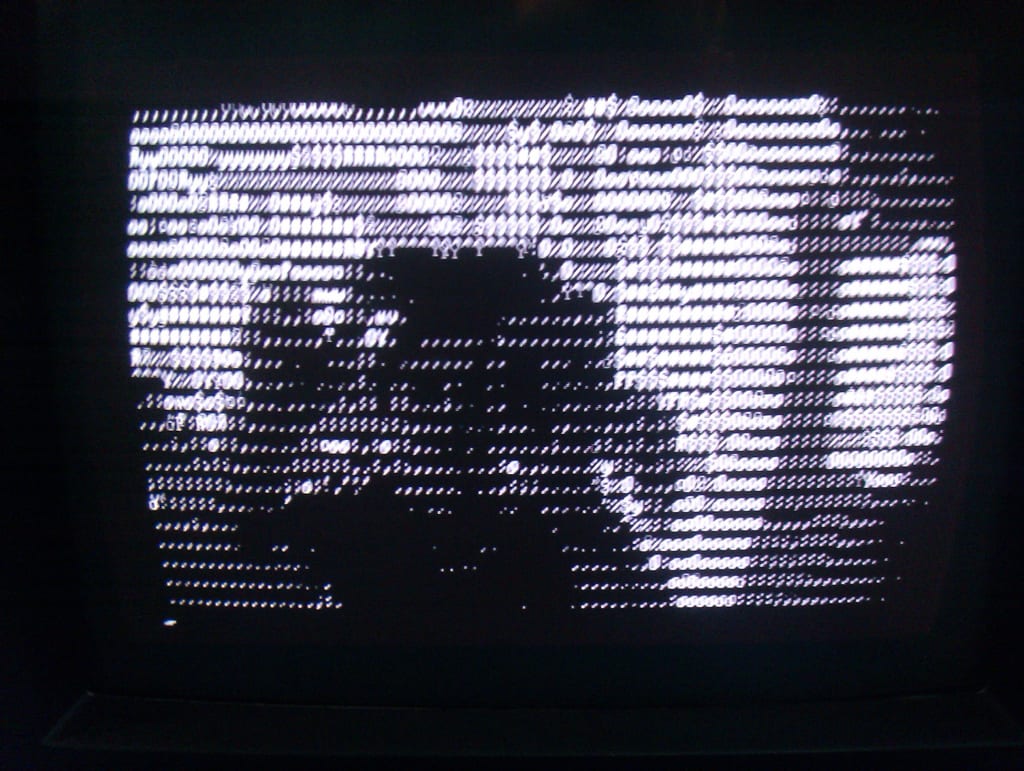The Austin Intelligence
from Bedtime Stories for Insomniacs

You can listen to this story and more including the audio versions of my novels for free at the Bedtime Stories for Insomniacs fiction podcast, available on all popular podcast apps and Audible.
“There’s a woman in your office, Mr. Bythewood.”
“How did she get in there?” Mr. Bythewood asked.
“I don’t know. She was here when I arrived,” his assistant, Ms. Blackstone replied.
“What does she want?”
“She didn’t say, but she looks very rich.”
Mr. Bythewood considered the situation. He was the head of one of the most successful investment firms on Wall Street, and it wasn’t unheard of for him to receive inquiries from wealthy people who valued their privacy as much as the returns on their investments. But rarely did they do so in person. Regardless, he would have a word with Junger in security.
“Hold my calls, Ms. Blackstone.”
“Yes, Mr. Bythewood,” the assistant replied. She sat down behind her desk and started opening the mail.
Mr. Bythewood turned the knob on his inner office door and pushed it open.
Standing in the center of the room was a strikingly beautiful woman. Mr. Bythewood judged her to be in her mid-thirties, but with plastic surgery these days, she could easily have been older.
“Good morning, Ms.…” he let the greeting hang in the air between them, hoping she would volunteer her name to complete it.
“You can call me Lina, Mr. Bythewood,” the woman said.
“How can I help you, Lina?” Mr. Bythewood asked as he made his way past her to his desk. “Are you looking to make an investment with our firm?”
She nodded. “Perhaps. But I’m a very cautious woman. I like to do my due diligence before I hand over my money to anyone.”
Mr. Bythewood smiled. “You want to know about the Austin Intelligence,” he said as he sat in his chair and reclined.
Lina again nodded.
“Well, I can’t tell you much more than you already know. It is proprietary technology. Trade secrets and all.”
“I want to see it,” Lina demanded.
Mr. Bythewood waved his hand in the air above him. “It’s a cloud thing. Spread out among thousands of servers in dozens of data centers across the globe.”
It was Lina’s turn to smile. “You and I both know that’s not true.”
Mr. Bythewood became suddenly nervous. “What do you mean?”
“I mean,” Lina began, “that your whole story about a distributed artificial intelligence is a load of—to put it politely—poppycock.”
“Oh, I can assure you that the Austin Intelligence is real,” Mr. Bythewood said.
“I didn’t say it wasn’t real,” Lina explained, “just that it wasn’t a cloud-based AI.”
Mr. Bythewood smiled again, this time nervously. “I’m not sure I know what you mean.”
“Do I really need to spell it out for you?” Lina asked.
“Please, I’m curious what you think you know.”
Lina walked over to a leather couch and sat down on it. She placed her hands on her knees and stared directly at Mr. Bythewood. “Let’s begin with your founder, Leonard Austin. He was a singular genius, a man who had the innate ability to see trends in markets and stocks, identify opportunities in derivatives, and apply what can best be described as an uncanny knack for timing to buy and sell at the precise times to maximize returns.”
“Yes, Mr. Austin was indeed a bold innovator in the investment field.”
Lina nodded. “And he did all that from a wheelchair, without the ability to move on his own, unable even to speak.”
“He faced many challenges,” Mr. Bythewood agreed.
“He built this company from nothing.”
“He had some help.”
“From you?” Lina asked. “You did nothing but exploit him. This company is worth nearly ten billion dollars, but Leonard Austin’s net worth at the time of his death was a little over two million.”
“Mr. Austin was well compensated for his services as a financial analyst.”
“Leonard may have had a mind for financial markets, but he did not have a head for business. You took advantage of that. You recognized his talent, and you built this business around him. But you wouldn’t have anything if it hadn’t been for him.”
Mr. Bythewood shrugged. “And he wouldn’t have been anything without me. There would be no BA Investments without my foresight.”
“And then he died,” Lina said.
“Yes, it was very sad, but he was very sick. The doctors said it was a miracle he had lived as long as he had.”
“Yet your firm continues making the kind of bold and lucrative deals you were known for when Leonard Austin was alive.”
“Because of the Austin Intelligence.”
“Which you claim is an AI that was trained via proprietary algorithms to mimic the decision making of the original Leonard Austin. In fact, it does more than manage your investments, it runs the company, everything from payroll to managing your real estate holdings.”
“What’s your point?”
“The thing is, your AI appears to be much more advanced than any other expert system. It seems to rely on…intuition, acting with a human-like imagination to see opportunities that other AIs, which apply traditional pattern recognition, miss.”
“What can I say? That’s why people choose BA Investments. We’re just better.”
“I want to see him,” Lina stated plainly.
“Excuse me?”
“I want to see Leonard Austin.”
“Mr. Austin is dead. I was at his funeral. I saw them lower his casket into the ground and cover it with dirt.”
Lina looked at Mr. Bythewood, staring deep into his eyes. It unnerved him. “You may have buried Mr. Austin, but he’s still working for you.”
“Don’t be absurd. You said yourself that he died.”
Lina rose from her seat and started pacing. “When Leonard Austin was first diagnosed with ALS, the doctors didn’t think he would live more than six months. But even though the disease rendered his body useless, his mind still worked.”
“Yes, I know all this. I was more than just his business partner; I was his friend.”
“Then you know about the system he utilized that allowed him to use a computer.”
“Of course. It was a prototype system that used machine learning to interpret his brainwaves and translate them into actions on his computer,” Mr. Bythewood explained. “Everyone knows that.”
“But what they don’t know is that, after Mr. Austin died, the interface continued working.”
Mr. Bythewood’s face became pale. He clenched his jaw and dug his fingernails into the leather surface of the blotter on his desk. “That’s ridiculous,” he said unconvincingly.
“You may not be aware, but Leonard’s neural interface is configured to send regular diagnostic information back to the device’s manufacturer. And according to the analytics, he’s still hooked up to it. I want to see him,” Lina repeated. “Or should I take my one-point-three billion dollars somewhere else?”
Mr. Bythewood said nothing.
“I can almost see what you’re thinking, Mr. Bythewood,” Lina said. “You’re debating whether the commissions that much money could generate are worth sharing your secret.” In her hands was a check. She placed it on the desk in front of him. It was made out in the amount of five hundred million dollars. “There’s more if you show him to me.”
Mr. Bythewood stared down at the check in front of him. The decision was easy. Besides, ever since it had happened, he had been dying to tell someone. He rose from his desk and crossed to a bookcase behind him. It was completely unnecessary to hide The Intelligence behind a secret door built into a bookcase, but when you have a lot of money, you have to spend it somewhere.
He pulled on a book, and a large section of the wall swung open.
Lina walked past the desk to the open passage and stepped inside the room beyond.
It was an office, not as large or opulent as Bythewood’s, but impressive nonetheless.
At the center of it was a desk. Underneath the large, dark slab was a collection of computers connected to each other by a web of cables. On the desk was a system of posts and arms that suspended nine monitors in a three-by-three array pointed at an empty motorized wheelchair. The chair had a halo of sensors attached to the headrest.
Lina smiled at the sight of it. “Hello, Leonard.”
She walked toward the chair.
“Whoa, hold on. Stay back. You said you wanted to see. You saw, now step away.”
Lina ignored him. She crossed behind the desk and looked at the monitors. A window popped up on one of them. A chat screen.
The word, “Hello,” appeared in green letters.
“It’s nice to see you again,” Lina said.
More words appeared. “Do I know you?”
“Okay, that’s enough,” Mr. Bythewood said. “You’ve seen the Austin Intelligence. Time to go.”
Lina turned to him. “Why do you call him that?”
“It’s not a him, it’s an it. The machine learning algorithm in the interface is just mimicking the thought patterns it processed for years. Yes, we tell people it’s a massive cloud-based AI because they’d never trust us with their money if they knew it was just a glitching neural interface.”
“A glitch?” Lina asked.
“Of course. A happy accident. Serendipity. A billion-dollar bug. What did you think it was? His ghost?” Mr. Bythewood laughed.
Lina did not.
“Look, I’m impressed that that you figured out that we weren’t telling the whole truth about the Austin Intelligence, but I hope now you understand why.”
“Do you know who created the neural interface?” Lina asked him.
“What?”
“Do you know who built this for him?”
Mr. Bythewood shrugged. “Some computer geek.”
Lina smiled, suppressing her anger. “It was built for him by an accomplished engineer who devoted her life to the study of neural interfaces for people with ALS, quadriplegics, and other victims of paralysis. And that woman also happened to be his mother.”
“You know, now that you mention it, I did know that. Didn’t she pass away a little while ago? I think we made a very generous donation to some foundation or something,” Mr. Bythewood said. He became nervous. “Did you…know her?” he asked.
Lina didn’t respond.
“Look,” Mr. Bythewood said, regaining his entitled indignation, “this neural interface is the property of BA Investments.”
“You’re wrong, Mr. Bythewood.”
“I have documentation. All personal property of Mr. Austin reverted to BA Investments upon his death.”
“No,” Lina told him. “You’re wrong believing that it’s the interface that’s running the computers. Do you have any idea how the human mind works?”
He shrugged. “Not exactly. I mean, who does?”
“It comes down to electrical interactions, and all electric currents create an associated electromagnetic field, and the neurons inside our brains create sequences of pulses that we call brainwaves. It is those waves that the neural interface detects and interprets, translating them into actions on the computer. It does this by creating a symbiotic electronic field that resonates with the mind’s activity.”
“I know that part,” Mr. Bythewood said.
“Without the presence of brainwaves, it’s just a funny-looking hat. But when Mr. Austin died, this device trapped those electronic signals in place. So, even though you removed his body, the part of him that persists beyond the lifespan of his physical self remained in place.”
“What do you mean, the part of him that persists? Are you talking about a soul?”
“I am.”
“And you think that it’s trapped in that chair.”
“He is.”
Mr. Bythewood crossed his arms. “Look, all of this is very entertaining, but the fact remains that this chair, this computer, and all of the financial analysis it provides is the property of BA Investments. You can invest with us or not, but you’re going to have to go now.”
“I see that you’ve added redundant power supplies to keep the interface going, but did you know that the symbiotic field can be overloaded with the presence of a second set of brainwaves?”
“What is that supposed to mean?”
“It means that if a second ‘soul’ were to come within sufficient proximity of the device, it would break the containment effect and release Mr. Austin from your cruel imprisonment.”
“That’s ridiculous.”
“Is it? Leonard loved doing what he did. For him it wasn’t a job; it was a challenge, seeing the patterns and discovering how to unlock their potential. You gave him an opportunity to pursue his passion, and you did make him comfortable. I am grateful for that.”
“But when he died, you should have let him go. I imagine he’s been so thrilled with the fact that he can work all day long without any rest that he doesn’t even realize that he’s dead. Did you know that, in addition to his physical challenges, he was autistic? That’s part of what makes him so good at what he does.”
“Look, I don’t know what you think you’re trying to pull, but if you damage that interface in any way, I’ll—”
“You’ll what? Sue me?”
“You think a ten-billion-dollar company doesn’t have an entire floor of lawyers in this building?”
“Oh, I’m sure you do, but I’m afraid they won’t be able to help you.”
“And why is that?”
“Do you know what Leonard Austin’s mother’s name was?”
“Why do you keep answering my questions with more questions?”
“Her name was Angelina Austin.”
Mr. Bythewood shrugged. “So what?”
“Lina, for short.”
It took a moment for the revelation to hit Mr. Bythewood.
Lina took a step toward the chair.
“I’m warning you, you don’t want to mess with the Intelligence,” Mr. Bythewood said sternly.
She turned back toward him. Only now, instead of being a woman of thirty-something, she was older, a woman in her sixties. She reached toward the chair with an age-spotted hand.
The monitors attached to the computer flickered.
Then Mr. Bythewood gasped as he saw a figure materialize in the chair.
It was Leonard.
“Hello, my son,” Lina said.
“Hi, Mom,” appeared on the screen with the chat window.
Lina smiled warmly. “You don’t need to use that thing to speak any more, son.”
“I don’t?” Leonard asked, this time with a voice that appeared to come from his mouth.
Mr. Bythewood’s knees buckled, and he almost fell to the floor.
“No, you don’t need any of it anymore. You’re free.” She held her hand out to him.
Leonard lifted his own hand from the arm rest and took hold of his mother’s. He smiled, excited. “Are we going somewhere?” he asked.
“Yes, but there is one thing I’d like you to do before we go.” She placed her hand to the side of his face in a motherly gesture. Something unspoken passed between them.
“Okay,” Leonard said, then he looked at the array of computer monitors as a flood of information scrolled by and windows popped open and closed. “All done.”
“What’s done? What did he do?” Mr. Bythewood asked.
Leonard spotted Mr. Bythewood leaning against the doorway. “Hi, Mr. Bythewood. Did you meet my mom?”
Mr. Bythewood nodded.
“Stand up,” Lina said to Leonard.
He reacted with surprise that such a thing was possible, then leaned forward and stood up.
“Come, Leonard. There’s so much I want to show you,” Lina said.
In the blink of an eye, they were gone.
The computer monitors went blank.
Mr. Bythewood took a moment to regain his balance and push back the blackness that threatened to engulf his consciousness. Leonard was gone. The Austin Intelligence was no more.
He stepped back into his own office. The check Lina had left was sitting on his desk, but when he went to reach for it, it too disappeared. An apt metaphor for the future of his company, he thought. Without the Austin Intelligence, he was nothing.
Ms. Blackstone entered and looked around, confused. “What happened to your guest?” she asked.
Mr. Bythewood sat down in the tall-backed leather chair behind the hand-carved walnut desk and sighed. “I’m afraid, Ms. Blackstone, that your services will no longer be required.”
Ms. Blackstone smiled. “He’s gone, isn’t he?”
Mr. Bythewood was confused by her question. “Pardon me?”
“Mr. Austin. She came here to take him away. I’m glad. You’re right. My services are no longer required. I no longer need to watch over him. My job here is done.”
Ms. Blackstone promptly disappeared just as quickly and completely as Lina and Leonard had done moments earlier.
“What the hell,” thought Mr. Bythewood. “Is everyone who works for me actually dead?” A horrifying revelation crossed his mind. He reached out with one hand and pinched the skin on the back of the other hand, digging his nails into the flesh as hard as he could. “Ow!” he exclaimed in pain.
Then, relieved, he flipped open the sleek laptop on one corner of his desk. Its operating system recognized his face and he clicked on an icon in one corner of the device’s desktop that simultaneously began selling all his holdings in BA investments, transferring all of his domestic assets to an off-shore account and putting in a request to prep the company jet.
Only, that’s not what happened. Instead, the funds were sent to various charities and foundations. Even his offshore accounts were emptied and deposited among several children’s hospitals.
Mr. Bythewood sighed in despair. This was just the beginning, he knew. Without the Austin Intelligence – or rather, Leonard – managing their clients’ portfolios the investors would flee. There might even be lawsuits from clients and stockholders, federal probes, stories on TMZ.
A new email message appeared in his inbox.
It was from Leonard.
“Thank you for helping me build this incredible fortune, Mr. Bythewood,” it read. “All of the people who will be helped by your generosity will forever grateful. It was fun working with you. See you on the other side!”
My Bythewood closed the lid of the laptop.
“Sooner than you probably think, my boy,” he said.
He opened a drawer in his desk where a gleaming pistol lay, loaded and waiting for just such an occasion as this.
You can find out more about the author, his novels, and the podcast where you can listen to this story at RichHosek.com
About the Creator
Rich Hosek
Television writer, novelist, fiction podcaster, software engineer, teacher, father, Lego fan, Doctor Who fanatic.






Comments
There are no comments for this story
Be the first to respond and start the conversation.